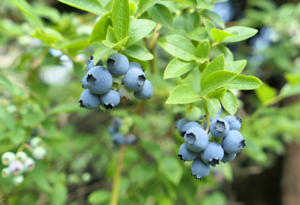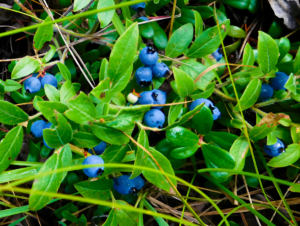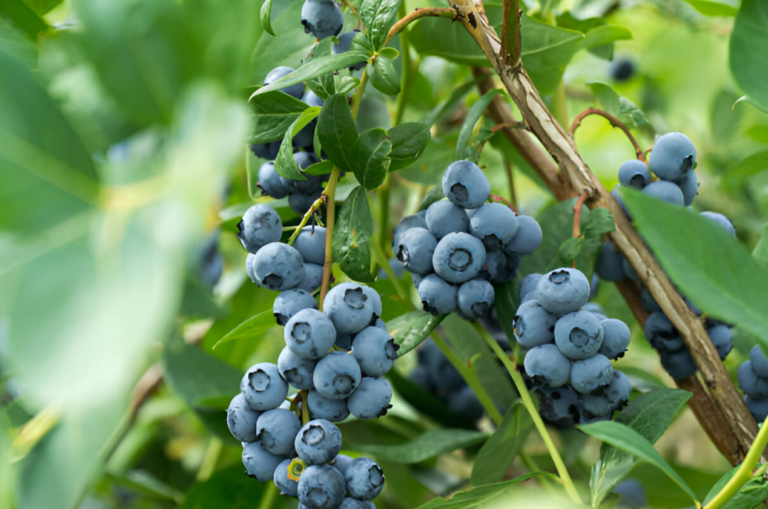Choosing the right blueberry variety for your garden is essential to achieving a healthy, productive plant. With different blueberry types suited to various climates and soils, knowing how to choose the right blueberry variety will help you maximize your harvest. In this guide, we’ll discuss the factors you need to consider to select the ideal variety for your garden.
If you’re also interested in other fruit-bearing plants or ways to enhance your garden, check out our guide on “How to Boost Your Plants with Manure Tea”, which offers natural methods to improve plant growth.
Why Choosing the Right Blueberry Variety Matters
Picking the correct blueberry variety for your garden depends on several factors, including climate, soil conditions, and space availability. Different blueberry types thrive in different environments, and understanding these factors ensures healthier plants and a better harvest. Additionally, certain varieties are more disease-resistant, making them easier to maintain.
For an in-depth understanding of how to preserve your harvest, you might also want to read our Ultimate Guide to Pickling.
Main Types of Blueberries

There are four primary types of blueberries, each suited to particular regions and growing conditions:
- Highbush Blueberries (Vaccinium corymbosum): Best for cooler climates.
- Lowbush Blueberries (Vaccinium angustifolium): Ideal for colder regions and known for their small, sweet berries.
- Rabbiteye Blueberries (Vaccinium ashei): Perfect for warmer climates, particularly in the southeastern U.S.
- Southern Highbush Varieties: These hybrids are heat-tolerant and great for hot, humid regions.

If you’re also working with smaller garden spaces or planters, see our article on “What Herbs to Plant Together” to make the most of your garden area.
Factors to Consider When Choosing a Blueberry Variety
1. Climate and Hardiness Zones
Understanding your USDA hardiness zone is key when choosing blueberry varieties. Different varieties thrive in specific climate zones. For example, Northern Highbush varieties are best for colder climates, while Rabbiteye varieties thrive in warmer regions.
2. Soil and pH Requirements
Blueberries require acidic soil with a pH of 4.5 to 5.5. You may need to adjust your soil’s pH level using sulfur or specialized fertilizers to meet these needs. Well-drained soil is also essential for blueberries, as they do not tolerate wet roots.
3. Space and Growth Conditions
The amount of space you have available is another crucial factor. Blueberries need room to grow and spread:
- Highbush blueberries require 4-6 feet of space between plants.
- Lowbush blueberries are more compact, making them ideal for smaller gardens or containers.
If you’re considering growing additional plants or shrubs in your garden, we have a comprehensive guide on “18 Must-Plant Trees to Line Your Driveway for Year-Round Beauty” that might offer further inspiration.
Popular Blueberry Varieties
Best Varieties for Cold Climates:
- ‘Bluecrop’: One of the best choices for colder climates, offering high yields and sweet, firm berries.
- ‘Patriot’: Another cold-hardy variety, known for its adaptability and disease resistance.
Best Varieties for Warm Climates:
- ‘Misty’: A Southern Highbush variety suited for regions with mild winters.
- ‘Premier’: A Rabbiteye variety that thrives in hot, humid climates.
FAQs About Blueberry Varieties
1. What is the best blueberry variety for beginners?
For beginners, Highbush varieties like ‘Bluecrop’ or ‘Patriot’ are often recommended because they are easy to grow and adapt well to different environments.
2. How do I ensure my blueberry bushes thrive in my region?
Choose a variety suited to your climate zone and ensure your soil is appropriately acidic.
Conclusion and Final Tips
Choosing the right blueberry variety for your garden depends on several factors, including climate, soil, and space. Always check your hardiness zone, test your soil’s pH, and consider disease resistance before making a decision. With the right care and variety, you’ll be rewarded with delicious, homegrown blueberries year after year!
For more in-depth advice on selecting blueberry varieties for your region, be sure to visit this comprehensive guide on selecting blueberry varieties.
